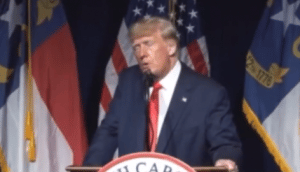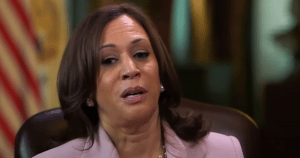Watchdog Sues State Department Over Records on GEC's Alleged Censorship
A government oversight group has taken legal action against the U.S. Department of State, demanding documentation on the controversial Global Engagement Center.
The Functional Government Initiative is pursuing disclosures about the GEC’s activities, alleging misuse of taxpayer funds to support efforts aimed at silencing free speech, according to the New York Post.
The lawsuit, initiated by the Functional Government Initiative (FGI), calls for access to documents from the Global Engagement Center (GEC). The GEC, a body formed in 2016 under President Barack Obama, was reportedly involved in actions that raised questions about free speech suppression. By using social media platforms, the GEC allegedly attempted to censor content, leading to significant public concern.
Allegations of Misuse of Public Funds Surface
Under scrutiny is the GEC's supposed authorization of public funds to finance organizations accused of blacklisting media outlets like The Post. This situation has further aggravated a contentious debate about government influence over news media through financial means.
The State Department has been accused of declining to provide information about the GEC's grant activities under President Biden. Despite several Freedom of Information Act (FOIA) requests submitted in September, the State Department has allegedly withheld several crucial records. These requests also sought to uncover any conversations relating to the European Union’s Digital Services Act and possible censorship discussions.
Conflict Over Recent Political Developments
The events in question relate notably to actions taken around the 2020 and 2024 elections. Observers and critics have suggested that there were attempts by the GEC to stifle speech during these politically sensitive periods, potentially impacting the electoral process. The FGI asserts that its ability to conduct thorough investigations is being hampered by the State Department’s refusal to provide requested records. Attorneys for FGI argue that the watchdog is suffering from "irreparable harm" due to the non-compliance with FOIA requirements.
GEC has also been linked with efforts to pressure social media platforms to censor various topics, including content related to COVID-19. Such actions have sparked criticism from various political figures and media organizations.
High-Profile Criticism and Responses
Two journalists, Gabe Kaminsky and Matt Taibbi, have been prominent critics of the GEC and have faced backlash from State Department officials. Further complications arise from an incorrect quote attribution involving Rep. Jim Banks in a State Department-drafted memo that sought to undermine scrutiny of the GEC's funding.
Despite the dissolution of the GEC on December 23, due to a cessation of funding by Congress, the FGI intends to persist with its inquiry. Peter McGinnis, a spokesman for FGI, emphasized the need to "expose layers" of what is described as a censorship endeavor by the Biden-Harris administration. McGinnis underscored the urgency of bringing to light any actions taken to suppress speech, both retrospectively in 2020 and looking forward to the recent 2024 election.
Financial Pathways to Influencing Media
The GEC provided a $100,000 grant to the Global Disinformation Index (GDI) in 2021 and 2022. In addition, the National Endowment for Democracy, a nonprofit mostly bankrolled by the U.S. government, also provided financial backing. Such connections have fed into narratives alleging an orchestrated effort by governmental bodies to control information flow.
Republicans have been particularly vocal in their criticism of the GEC's alleged collaboration with organizations engaged in regulating speech on digital platforms in the U.S. This debate has been further provoked by accusations that an advertising cartel was working to defund specific media outlets through a "blacklist."
The Scope and Impact of the Lawsuit
In its lawsuit, FGI lists several high-ranking officials, including Secretary of State Antony Blinken, as likely involved in communications pertinent to this investigation.
The watchdog argues that by obtaining these records, the public can achieve greater transparency on whether State Department officials were interacting with entities concerning EU censorship laws. The FGI maintains that uncovering these interactions is crucial for upholding democratic principles.
This ongoing legal battle underscores the tensions between government oversight interests and national operational confidentiality. As the case progresses, it may reveal important insights into how government agencies have recently interacted with both domestic and international media-related law and policy matters.




